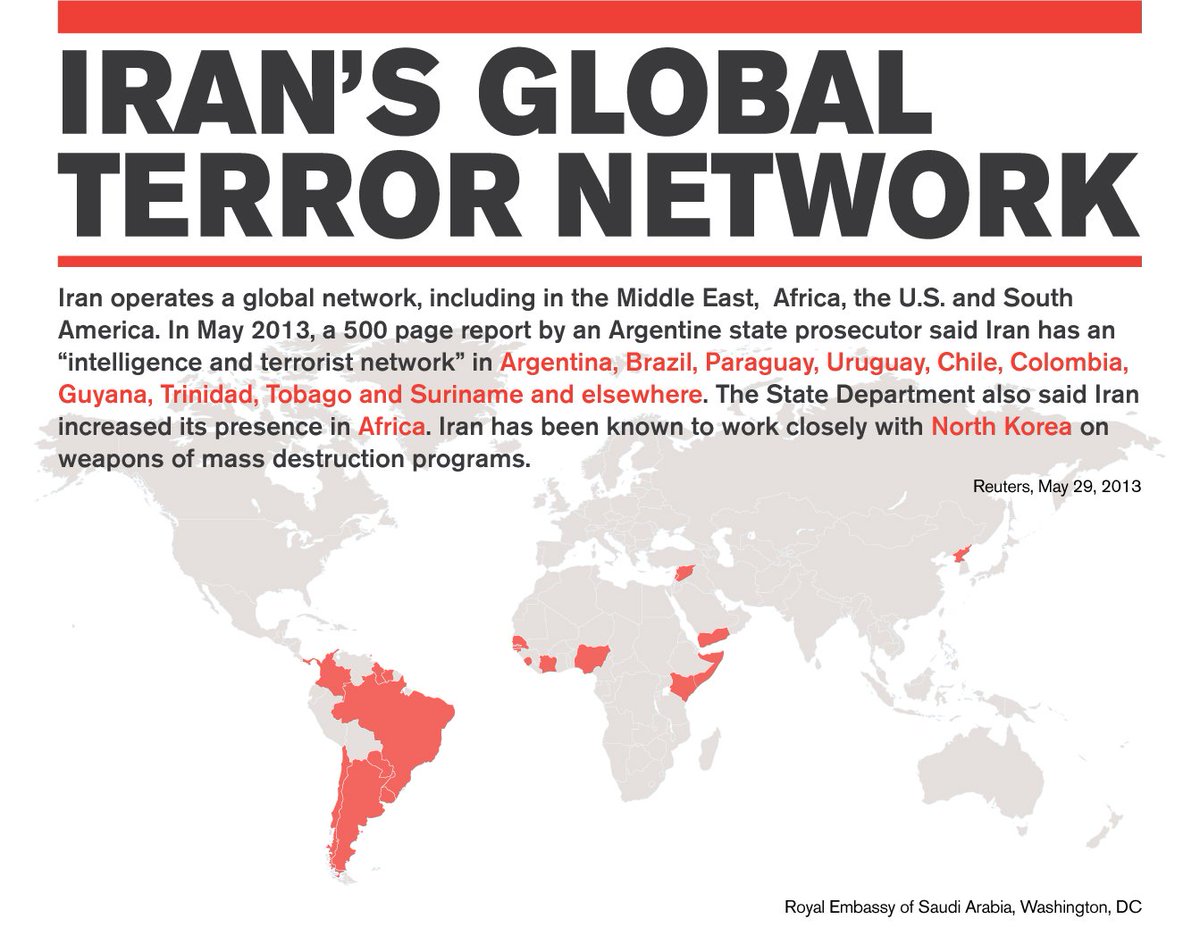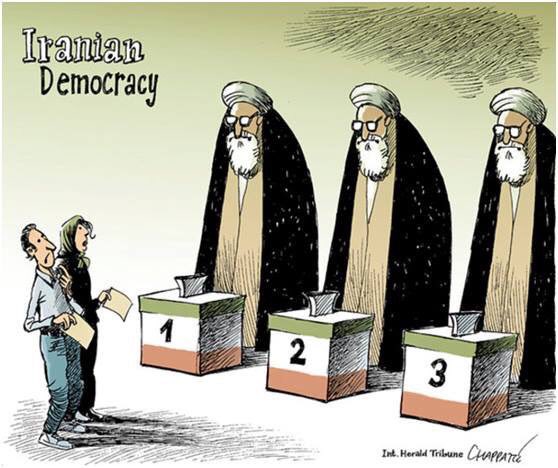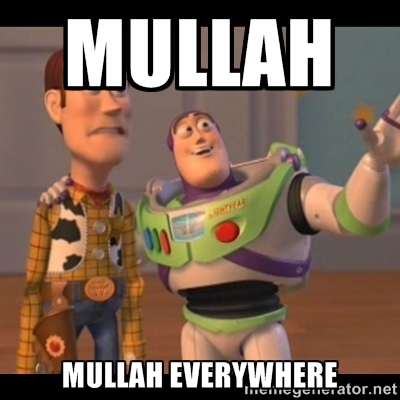Bubblegum Crisis
Professional
...
Saintly Iran…
Quote :
Police smash huge Hizbollah cocaine ring 'raising funds for war in Syria'
DEA says Iran-backed group forged links to ruthless Colombian cartel set up by Pablo Escobar
By Colin Freeman
1:45PM GMT 02 Feb 2016
Police have smashed a cell of Hizbollah agents accused of trafficking cocaine for one of the world's most ruthless drug cartels to fund the militant group's war in Syria.
The agents, arrested in France, allegedly masterminded a massive global drug ring which raised millions of dollars to arm Hizbollah gunmen fighting for Bashar al-Assad, the Syrian president, in Syria.
According to America's Drug Enforcement Agency (DEA), they worked directly with Colombian cocaine cartels, including a feared debt collection outfit set up by the Pablo Escobar, the late drug lord portrayed in last year's hit Netflix TV series "Narcos".
Two years ago, one of the outfit’s sicarios, or hitmen, was arrested in Spain on suspicion of having ordered up to 400 murders worldwide.
The Hizbollah agents detained by French police include alleged leaders of the group's European cell, including 45-year-old businessman Mohamad Noureddine.
The DEA, which has classified him as a “specially-designated global terrorist”, accuses him of being a Lebanese money launderer for Hizbollah's financial arm.
The agency said its operation had targeted the "business affairs component" of Hizbollah's main external security organisation, which raises money through supporters in the Lebanese business diaspora around the world.
Past DEA inquiries have suggested it launders drug cash through firms exporting second-hand cars to Africa, sometimes even hiding cash inside the vehicles as they are shipped internationally.
A DEA statement said: "These proceeds are used to purchase weapons for Hizbollah for its activities in Syria. This ongoing investigation…once again highlights the dangerous global nexus between drug trafficking and terrorism."
The DEA did not give the total number of those arrested or say where they were apprehended. But it said that seven countries, including France, Germany, Italy and Belgium, were involved in the investigation, which began last February.
The US Treasury Department last week imposed sanctions against Noureddine and Hamid Zaher El Dine, another alleged Hizbollah money launderer. Noureddine's company, a Lebanese conglomerate called Trade Point International, was also placed under sanctions.
“Hizbollah needs individuals like Mohamad Noureddine and Hamdi Zaher El Dine to launder criminal proceeds for use in terrorism and political destabilisation,” said Adam J. Szubin, acting under secretary for terrorism and financial intelligence.
The claims that Hizbollah, a Shia Muslim group, is doing business with cocaine traffickers is potentially highly embarrassing for the group, which cultivates an image of religious piety at home in Lebanon.
It is also embarrassing for its main external backers, Iran, which, like Hizbollah, has also sent fighters to support the regime in Damascus.
The decision of Hizbollah and the Revolutionary Guard to help Assad, a fellow Shia, has been cited as one of the main reasons for the conflict escalating into sectarian civil war.
Outlining how the money-laundering scheme worked, the DEA said it had uncovered an intricate network of Hizbollah money couriers. They transported millions of euros in drug proceeds from Europe to the Middle East.
That currency was then paid in Colombia to drug traffickers using the Hawala system, a Middle Eastern form of "money wire", whereby trusted intermediates pay out cash in one country once a counter-payment has been made in another.
The DEA added that Hizbollah’s business arm was still laundering "significant drug proceeds" via the "Black Market Peso Exchange", a complex system set up by Latino drug cartels that effectively acts as their own international currency network.
First pioneered in the 1980s, when drug lords like Escobar found themselves overwhelmed by the sheer amount of cash they were earning, the system launders drug cash by giving it indirectly to legitimate Colombian businessmen to purchase US consumer goods for sale in Colombia.
The DEA's accusations hint at the scale of the global cocaine smuggling network, and the symbiotic relationship between paramilitary groups and professional drug traffickers.
Hizbollah has long been known to have a particularly active global fundraising network, taking advantage of the large Lebanese diaspora communities who have fled successive wars in the country over the last century.
Today Lebanese are well represented in both west Africa and Latin America, where they run hotels, shops and import-export businesses.
Within those communities are a number of Hizbollah supporters, who are said to move freely between the US and South America by using forged passports issued from Venezuela.
The DEA investigation also links Hizbollah to a Colombian cartel known as La Oficina de Envigado, which was set up as a debt collection and dispute resolution outfit by Escobar's Medellin cartel.
Named after the city of Envigado where it was first set up, it now also sells drugs itself, and also runs casinos to launder cash.
In 2014, a Colombian hitman nicknamed "The Mouse", was accused of orchestrating at least 400 murders for La Oficina de Envigado, was arrested outside Alicante in Spain.
The Telegraph
...
Saintly Iran…
Quote :
Police smash huge Hizbollah cocaine ring 'raising funds for war in Syria'
DEA says Iran-backed group forged links to ruthless Colombian cartel set up by Pablo Escobar
By Colin Freeman
1:45PM GMT 02 Feb 2016
Police have smashed a cell of Hizbollah agents accused of trafficking cocaine for one of the world's most ruthless drug cartels to fund the militant group's war in Syria.
The agents, arrested in France, allegedly masterminded a massive global drug ring which raised millions of dollars to arm Hizbollah gunmen fighting for Bashar al-Assad, the Syrian president, in Syria.
According to America's Drug Enforcement Agency (DEA), they worked directly with Colombian cocaine cartels, including a feared debt collection outfit set up by the Pablo Escobar, the late drug lord portrayed in last year's hit Netflix TV series "Narcos".
Two years ago, one of the outfit’s sicarios, or hitmen, was arrested in Spain on suspicion of having ordered up to 400 murders worldwide.
The Hizbollah agents detained by French police include alleged leaders of the group's European cell, including 45-year-old businessman Mohamad Noureddine.
The DEA, which has classified him as a “specially-designated global terrorist”, accuses him of being a Lebanese money launderer for Hizbollah's financial arm.
The agency said its operation had targeted the "business affairs component" of Hizbollah's main external security organisation, which raises money through supporters in the Lebanese business diaspora around the world.
Past DEA inquiries have suggested it launders drug cash through firms exporting second-hand cars to Africa, sometimes even hiding cash inside the vehicles as they are shipped internationally.
A DEA statement said: "These proceeds are used to purchase weapons for Hizbollah for its activities in Syria. This ongoing investigation…once again highlights the dangerous global nexus between drug trafficking and terrorism."
The DEA did not give the total number of those arrested or say where they were apprehended. But it said that seven countries, including France, Germany, Italy and Belgium, were involved in the investigation, which began last February.
The US Treasury Department last week imposed sanctions against Noureddine and Hamid Zaher El Dine, another alleged Hizbollah money launderer. Noureddine's company, a Lebanese conglomerate called Trade Point International, was also placed under sanctions.
“Hizbollah needs individuals like Mohamad Noureddine and Hamdi Zaher El Dine to launder criminal proceeds for use in terrorism and political destabilisation,” said Adam J. Szubin, acting under secretary for terrorism and financial intelligence.
The claims that Hizbollah, a Shia Muslim group, is doing business with cocaine traffickers is potentially highly embarrassing for the group, which cultivates an image of religious piety at home in Lebanon.
It is also embarrassing for its main external backers, Iran, which, like Hizbollah, has also sent fighters to support the regime in Damascus.
The decision of Hizbollah and the Revolutionary Guard to help Assad, a fellow Shia, has been cited as one of the main reasons for the conflict escalating into sectarian civil war.
Outlining how the money-laundering scheme worked, the DEA said it had uncovered an intricate network of Hizbollah money couriers. They transported millions of euros in drug proceeds from Europe to the Middle East.
That currency was then paid in Colombia to drug traffickers using the Hawala system, a Middle Eastern form of "money wire", whereby trusted intermediates pay out cash in one country once a counter-payment has been made in another.
The DEA added that Hizbollah’s business arm was still laundering "significant drug proceeds" via the "Black Market Peso Exchange", a complex system set up by Latino drug cartels that effectively acts as their own international currency network.
First pioneered in the 1980s, when drug lords like Escobar found themselves overwhelmed by the sheer amount of cash they were earning, the system launders drug cash by giving it indirectly to legitimate Colombian businessmen to purchase US consumer goods for sale in Colombia.
The DEA's accusations hint at the scale of the global cocaine smuggling network, and the symbiotic relationship between paramilitary groups and professional drug traffickers.
Hizbollah has long been known to have a particularly active global fundraising network, taking advantage of the large Lebanese diaspora communities who have fled successive wars in the country over the last century.
Today Lebanese are well represented in both west Africa and Latin America, where they run hotels, shops and import-export businesses.
Within those communities are a number of Hizbollah supporters, who are said to move freely between the US and South America by using forged passports issued from Venezuela.
The DEA investigation also links Hizbollah to a Colombian cartel known as La Oficina de Envigado, which was set up as a debt collection and dispute resolution outfit by Escobar's Medellin cartel.
Named after the city of Envigado where it was first set up, it now also sells drugs itself, and also runs casinos to launder cash.
In 2014, a Colombian hitman nicknamed "The Mouse", was accused of orchestrating at least 400 murders for La Oficina de Envigado, was arrested outside Alicante in Spain.
The Telegraph
...







